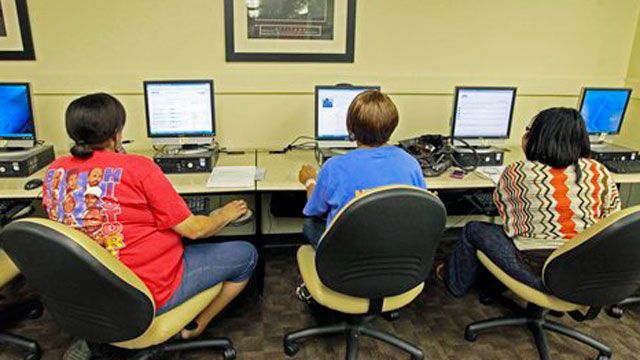Three Reasons the Job Market is Still Suffering
May’s disappointing jobs report rattled Wall Street and has many economists and consumers wondering if the labor market was ever on a path to recovery.
On Friday the Labor Department reported the economy added 69,000 jobs last month, short of the expected 158,000 new positions. The unemployment rate ticked up to 8.2% and both the April and March job creation figures were revised downward.
The following figures also throw cold water on hopes we were turning the corner on job creation:
- 14.8%: The percentage of underemployed (both jobless and voluntarily part-time)
- 16.1%: The percentage of 16-24 year olds unemployed
- 50%: The percentage of college graduates unable to find a job within a year of graduation (2009-2011)
- 5.4 million: The number of Americans who have been unemployed longer than six months
In light of these worse-than-expected numbers, it’s time to identify barriers that are hurting job creation and stifling any growth in the labor market and how to fix them.
Opportunities. There are too many uncertainties hanging over businesses for them to make any significant moves in the next five months. Most reports indicate companies are flush with cash, but the lack of clarity with health care reform and the presidential election is making them too scared to spend and increase their payroll.
To make matters worse, the euro zone hit a record 17.4 million unemployed individuals in April. Technology has made the world more connected—and even small businesses interact on a global marketplace. As a result, companies will continue to play it safe by hiring contingent workforces, hinting hiring will likely stay stagnant. Both the White House and Congress need to get out of the way of America’s job creators.
Incentives. Although people did start re-entering the workforce in May, the labor participation rate is sitting near a 30-year low. Some argue continued unemployment benefits are becoming a crutch for job seekers, but soon the aid will disappear as both federal and state benefits expire for some individuals.
As a nation, we should always be willing to help each other out, but throwing money at a problem rarely solves anything. Benefit programs should focus on scholarships and training programs that meet local skill needs, not just providing payouts. At best, welfare payouts are a stop gap measure, and they do little to move the ball forward. We need forward momentum, not incentivized stagnation.
Mindset. I frequently receive e-mails from job seekers complaining about the lack of job opportunities. They get frustrated because they don’t hear back from companies after submitting resumes, and they feel jobs aren’t being fairly advertised or posted.
We have entered an era where careers can no longer be pursued, they must be created. In order to get out of this labor market downturn, we have to rekindle the spirit of American entrepreneurialism. We have created a bailout mentality where people now expect the government to step in and fix any problems. It’s time for people to feel empowered and make things happen for themselves.
A trend growing among young college grads is combining unpaid internships with other part-time work so they can gain valuable experience and pay the bills at the same time. Adults in transition may need to start thinking this way too. There are certainly paid part-time opportunities out there and volunteering can be a great way to gain valuable experience in a new industry, as well as make great networking connections. Taking a part-time or lower-paying job isn’t always ideal, but it will help cover the bills while making gains in the more desirable industry.
There are opportunities out there for those willing to look. We need to encourage personal responsibility, open mind thinking, and a belief that individuals can find their own way.
Michael “Dr. Woody” Woodward, PhD is a CEC certified executive coach trained in organizational psychology. Dr. Woody is author of The YOU Plan: A 5-step Guide to Taking Charge of Your Career in the New Economy and is the founder of Human Capital Integrated (HCI), a firm focused on management and leadership development. Dr. Woody also sits on the advisory board of the Florida International University Center for Leadership.Follow Dr. Woody on Twitter and Facebook




















